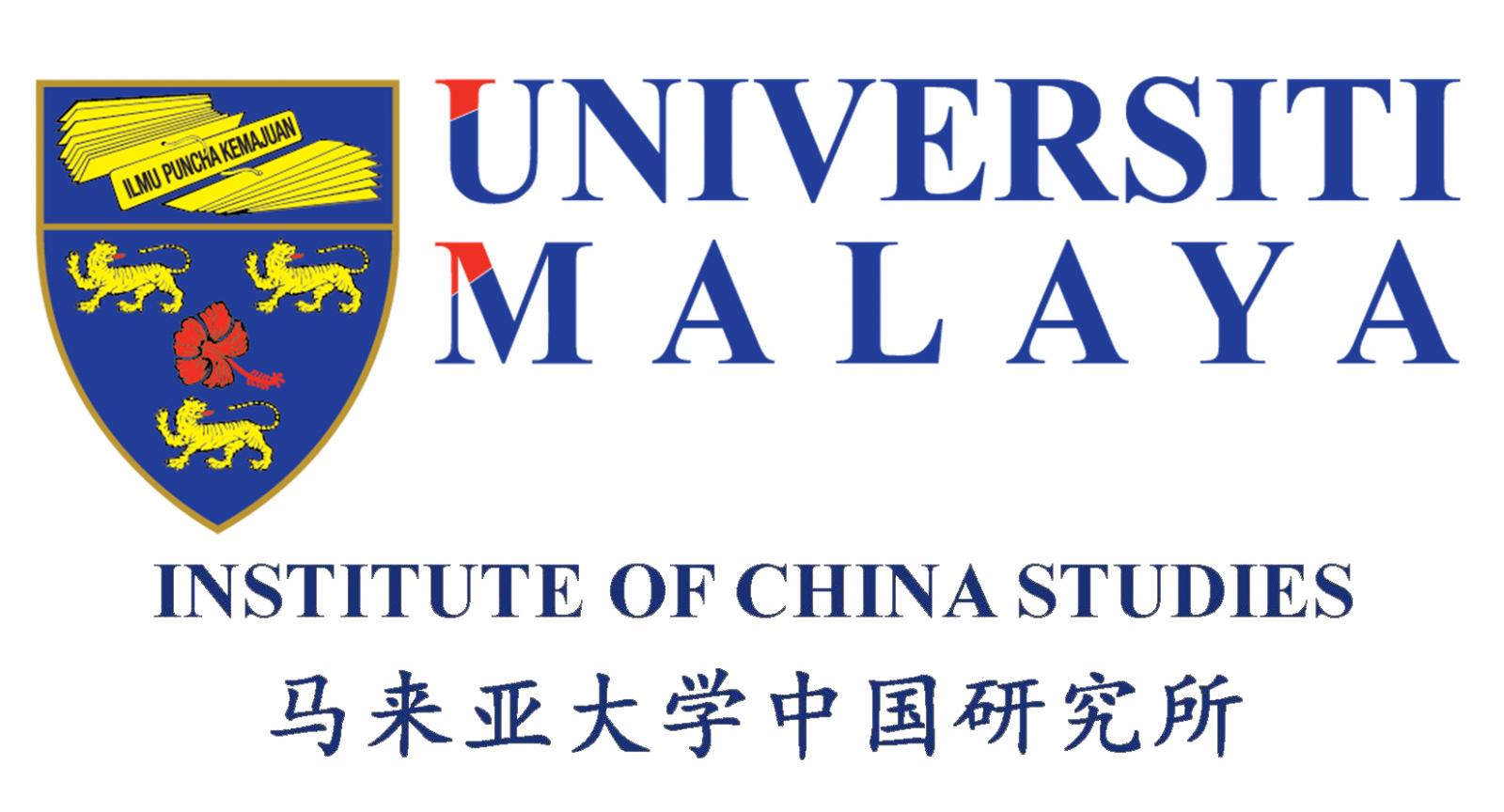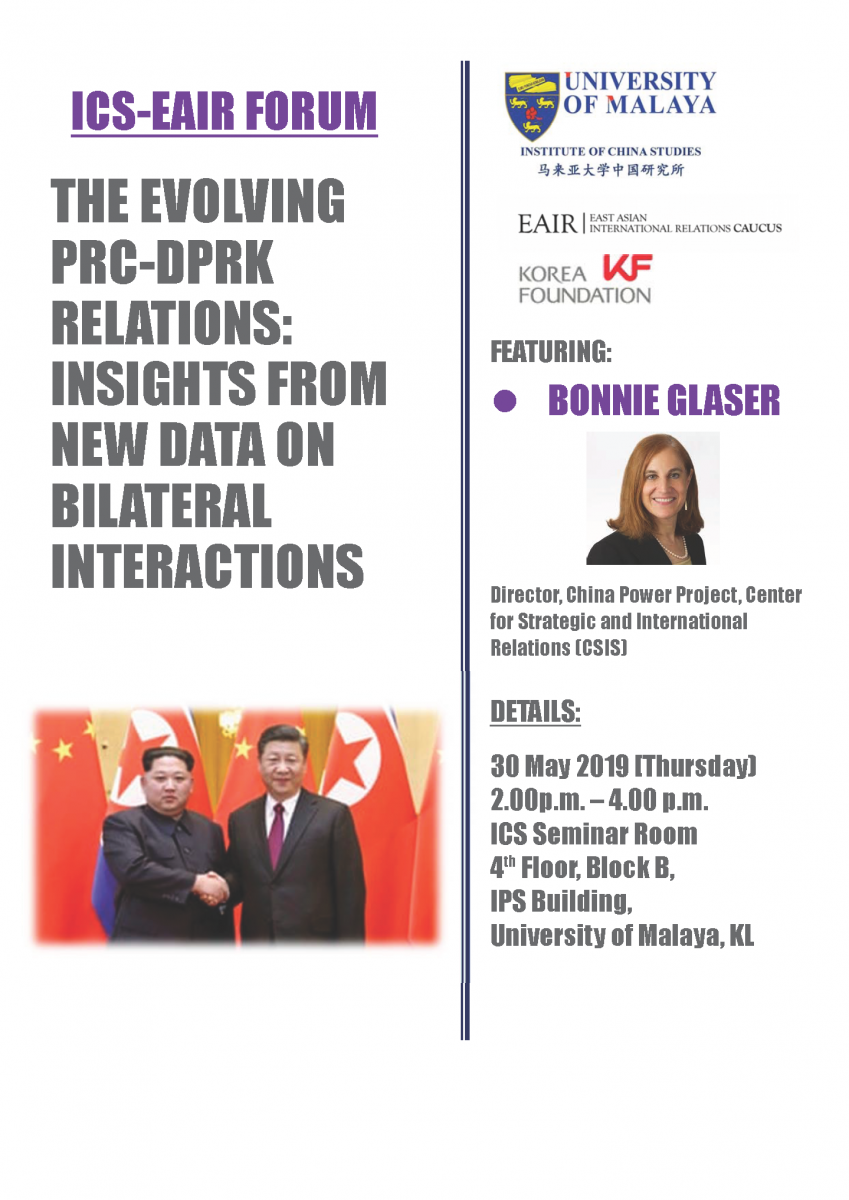Date
May 30, 2019
Time
2.00 p.m. - 4.00 p.m.
Venue
ICS Seminar Room, 4th Floor, Block B, IPS Building, University of Malaya, Kuala Lumpur
Language
English
Speaker :
Bonnie GLASER
Director, China Power Project, Center for Strategic and International Relations (CSIS)
Organizers :




China has enduring interests on the Korean Peninsula, including: (1) preserving peace; (2) averting instability; (3) preventing unification under US influence and with the continued presence of sizeable US military forces; and, if possible, (4) eliminating nuclear weapons. The prospects of an end to the post-Korean War stalemate on the Peninsula poses both risks and opportunities for China. After a long period of high-level disengagement between Chinese and North Korean leaders, Xi Jinping and Kim Jong Un held four summits in the past year. While much attention has been paid to these leadership meetings, there has been less focus on lower level bilateral interactions between China and North Korea. Those interactions provide insight into how China manages its relationship with North Korea and how it seeks to influence developments on the Peninsula. For Beijing, enhancing Chinese influence on the Korean Peninsula is important because the long-term strategic orientation of the Peninsula is pivotal in terms of the balance of power in the region between China and the United States Bonnie Glaser will discuss recent developments in China’s relations with North Korea. She will present new data to contextualize China’s changing relationship with North Korea.
Last Update: 16/03/2022